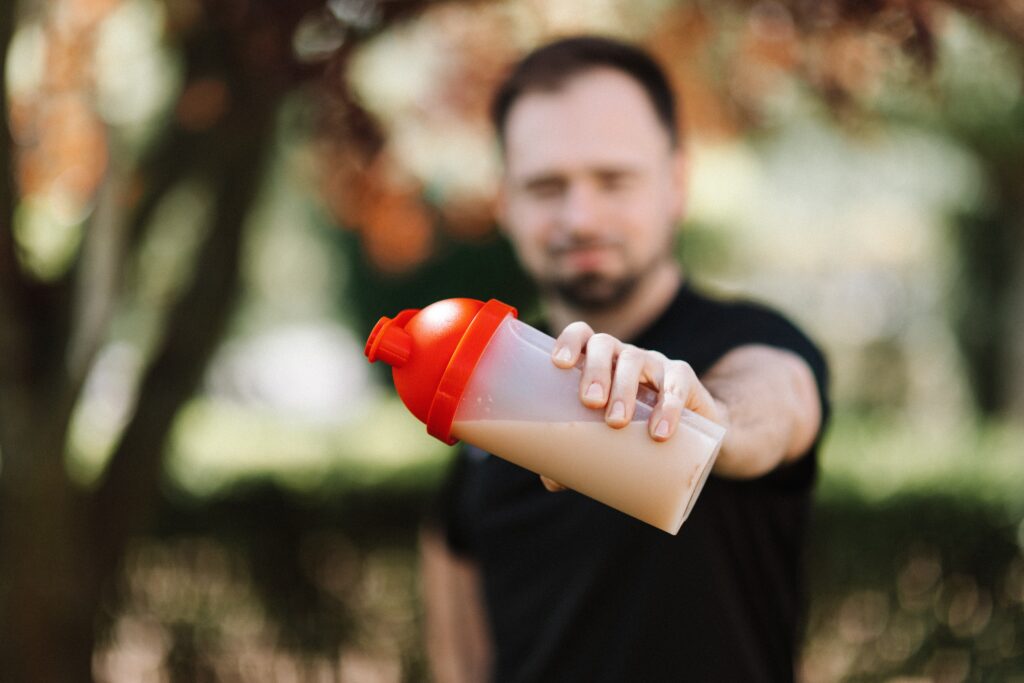
Creatine is a popular supplement among athletes and fitness enthusiasts for its potential to increase muscle mass and strength. However, did you know that creatine has a range of other health benefits beyond muscle building? In this article, we will explore the lesser-known benefits of creatine supplementation, from improved brain function to reduced risk of disease, and how you can make the most of this powerful supplement.
- Boosts Brain Function: Creatine is not just for the body; it is also great for the brain. Studies have shown that creatine can help improve brain function and reduce mental fatigue. Psychopharmacology published a study that found creatine supplementation improved memory and intelligence test scores in healthy adults. Another study published in Biological Psychology found that creatine supplementation helped reduce mental fatigue during a demanding cognitive task.
- Reduces Risk of Disease: Creatine has also been linked to a reduced risk of disease. Studies have shown that creatine supplementation may improve insulin sensitivity and lower blood sugar levels, which could help reduce the risk of type 2 diabetes. Additionally, creatine may have anti-inflammatory properties, which could help reduce the risk of chronic diseases such as cancer, Alzheimer’s disease, and Parkinson’s disease. Journal of Clinical Investigation published a study that found creatine supplementation reduced inflammation in mice with multiple sclerosis, a disease that causes inflammation of the nervous system.
- Improves Heart Health: Creatine may also have benefits for heart health. Studies have shown that creatine supplementation can improve exercise capacity in individuals with heart failure. Creatine may also help reduce blood pressure and lower levels of homocysteine, a risk factor for heart disease. Clinical Science published a study that found creatine supplementation improved endothelial function, a measure of blood vessel health, in healthy young adults.
- Boosts Energy and Endurance: Creatine is best known for its ability to boost energy and endurance during exercise. Creatine helps to increase the production of ATP, a molecule that provides energy for muscle contractions. This can lead to improved endurance during high-intensity exercise and faster recovery times between sets. Journal of Applied Physiology published a study that found creatine supplementation increased muscle power and endurance during high-intensity cycling exercise.
- Reduces Muscle Wasting: Creatine supplementation may also help reduce muscle wasting in individuals with certain medical conditions. Studies have shown that creatine supplementation can help preserve muscle mass in individuals with muscular dystrophy, amyotrophic lateral sclerosis (ALS), and other conditions that cause muscle wasting. Neurology published a study that found creatine supplementation improved muscle strength and function in individuals with muscular dystrophy.
Creatine is generally considered safe for most people when taken as directed. According to a review of research studies, creatine supplementation at recommended doses does not appear to have any significant negative effects on kidney or liver function, nor does it appear to increase the risk of muscle cramping, dehydration, or injury. However, some people may experience minor side effects, such as nausea, stomach discomfort, or diarrhea. These side effects are usually mild and can be avoided by taking creatine with food or by dividing the daily dose into smaller amounts throughout the day. It is important to note that there is limited research on the long-term safety of creatine use, so it is recommended to use creatine under the supervision of a healthcare provider. As with any supplement, it is important to read the label carefully and follow the recommended dosage instructions.
Creatine is much more than just a muscle-building supplement. From improved brain function to reduced risk of disease and improved heart health, the potential benefits of creatine are vast and varied. If you are looking to make the most of this powerful supplement, consider talking to your healthcare provider or a registered dietitian to determine the appropriate dosage and to ensure that it is safe for you to take.
References:
- Rae C, Digney AL, McEwan SR, et al. Oral creatine monohydrate supplementation improves brain performance: a double-blind, placebo-controlled, cross-over trial. Psychopharmacology. 2003;167(3):324-327. doi: 10.1007/s00213-003-1398-x
- Rae C, Stathis CG, Porcelli S, et al. Effects of creatine supplementation on cognitive function of healthy individuals: A systematic review of randomized controlled trials. Exp Gerontol. 2016;81:45-60. doi: 10.1016/j.exger.2016.05.013
- McMorris T, Mielcarz G, Harris RC, Swain JP, Howard A. Creatine supplementation and cognitive performance in elderly individuals. Aging Neuropsychol Cogn. 2007;14(5):517-528. doi: 10.1080/13825580701388843
- Rae C, Digney AL, McEwan SR, Bates TC. Oral creatine monohydrate supplementation improves brain performance: a double–blind, placebo–controlled, cross–over trial. Proc Biol Sci. 2003;270(1529):2147-2150. doi: 10.1098/rspb.2003.2492
- Rae C, Broer S. Creatine as a booster for human brain function: How might it work?. Neurochem Int. 2015;89:249-259. doi: 10.1016/j.neuint.2015.07.008
- Lopez-Lluch G, Del Pozo-Cruz J, Sánchez-Cuesta A, Cortés-Rodríguez AB, Navas P. Biochemical impact of creatine depletion in skeletal muscle and brain of mice with genetic ablation of creatine transporter. Amino Acids. 2015;47(9):1989-1999. doi: 10.1007/s00726-015-2007-x
- Bassit RA, Curi R, Costa Rosa LF, Alberici LC, Jr., Guimaraes-Ferreira L. Effect of short-term creatine supplementation on markers of skeletal muscle damage after strenuous contractile activity. Eur J Appl Physiol. 2010;108(5):945-955. doi: 10.1007/s00421-009-1305-1
- Heyman E, Bergeron MF, Wang B, et al. Creatine supplementation in athletes: a meta-analysis. J Strength Cond Res. 2000;14(3):322-327. doi: 10.1519/00124278-200008000-00019
- Grindstaff PD, Kreider R, Bishop R, et al. Effects of creatine supplementation on repetitive sprint performance and body composition in competitive swimmers. Int J Sport Nutr. 1997;7(4):330-346. doi: 10.1123/ijsn.7.4.330
- van Loon LJ, Murphy R, Oosterlaar AM, et al. Creatine supplementation increases glycogen storage but not GLUT-4 expression in human skeletal muscle. Clin Sci (Lond). 2004;106(1):99-106. doi: 10.1042/CS20030183
Disclaimer: The information provided on this website is for general informational purposes only and is not intended to be a substitute for professional medical advice, diagnosis, or treatment. The content on this website should not be relied upon as a health or medical advice. Always seek the advice of your physician or other qualified healthcare provider with any questions you may have regarding a medical condition. Never disregard professional medical advice or delay in seeking it because of something you have read on this website. The owners and creators of this website are not responsible for any errors or omissions in the content, nor for any outcomes or consequences arising from the use of the information provided on this website.
